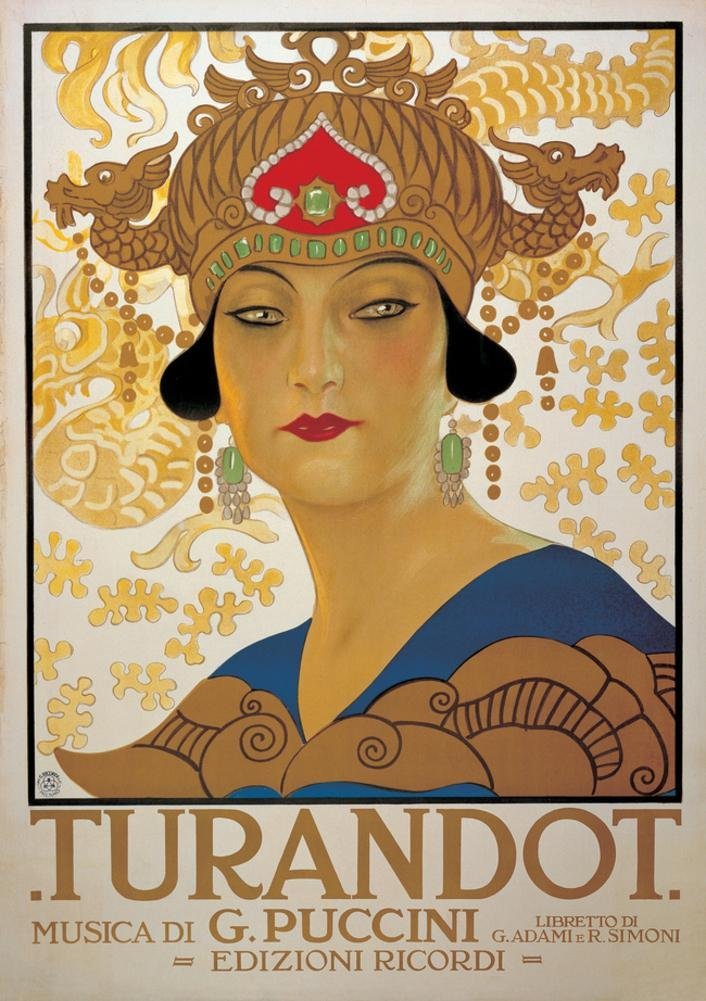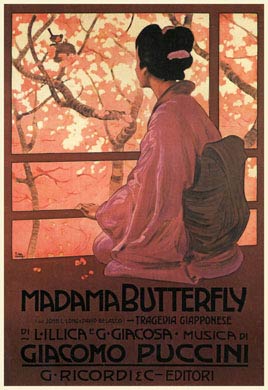
Turandot [1926]
Opera Turandot is set in Beijing, China and tells the story of proud Princess Turandot and unknown Prince Calaf. Turandot is a haughty Princess who wants to take revenge for a crime once committed against one woman in her ancestry line by condemning young princes from afar to their deaths. To achieve this aim, Turandot demands that every man that wants to marry her has to solve her three riddles. Whoever solves her three puzzles will become her husband, but if that person is unable to solve them – he will be executed. However, despite very probable deadly consequences of this trial-riddle imposed by the Princess, there is no shortage of young men willing to risk their lives since Turandot is very beautiful. Then, comes Calaf, a Prince travelling with his father Timur and a slave-girl Liu, and he will stop at nothing until he completes the challenge and wins the hand of Turandot. Turandot is an opera of extravagant displays, great passions and narrative contrasts and extremes. Puccini’s music diffuses Asian tones and makes use of powerful choirs, providing a kaleidoscopic musical experience, with the heart-wrenching final-act aria “Nessun dorma” rightly deserving its place among the finest operatic arias ever.
Continue reading “Puccini’s Opera: Turandot”


